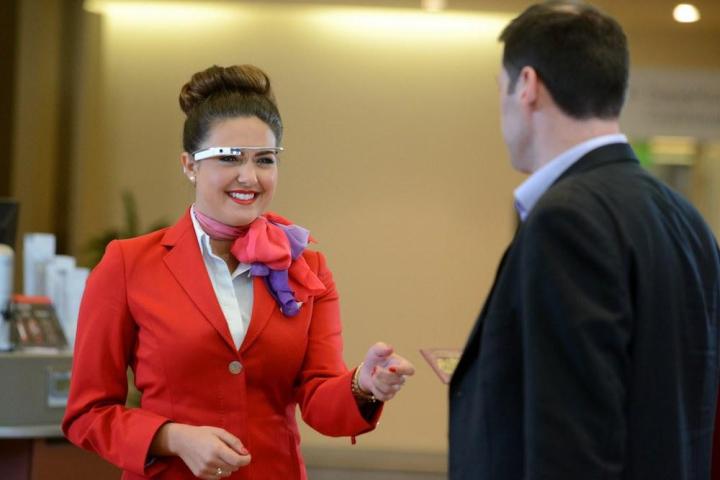
As Google Glass edges closer to commercial availability, an increasing number of companies and organizations are looking at the possibility of incorporating the Web giant’s tech into their business.
Virgin Atlantic, for example, is equipping its ground-based staff at London’s Heathrow airport with the face-based computer in a six-week trial designed to make the check-in process smoother for its customers – if you happen to be a first- or business-class passenger, that is. Sony’s SmartWatch 2 is also being tried out in the pilot scheme.
With a few taps and swipes on the touchpad of Google’s gadget, staff will be able to provide passengers with the latest information on flight status, weather at their destination, as well as local events taking place there. While an app or two on your smartphone should be able to provide you with the same information, Virgin Atlantic has also partnered with air transport IT specialist SITA to build a dispatch app to manage task allocation and concierge availability.
The special service incorporating the wearable tech is based at Virgin Atlantic’s Upper Class Wing at Heathrow, a special lounge designed specifically for its high-paying customers. The app works by pushing relevant passenger-related information to Glass or the smartwatch as the flier arrives at the lounge.
According to SITA, the technology may at some point be used to “tell Virgin Atlantic staff their passengers’ dietary and refreshment preferences – anything that provides a better and more personalized service.”
If staff find the wearable tech and accompanying app to be useful, the service is likely to be rolled out more widely in the future.
Virgin Atlantic is also testing Apple’s iBeacon technology with its Upper Class passengers at Heathrow, with the Bluetooth transmitter providing arriving passengers with information on nearby services and discounts, together with updates on boarding schedules.


